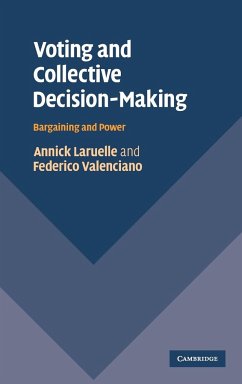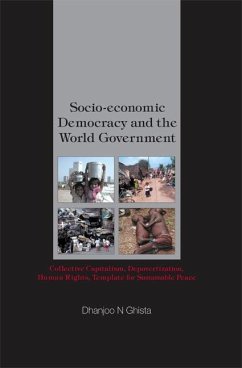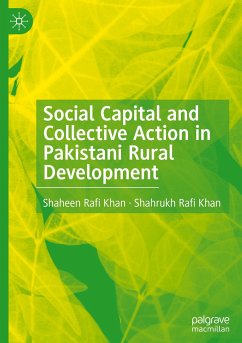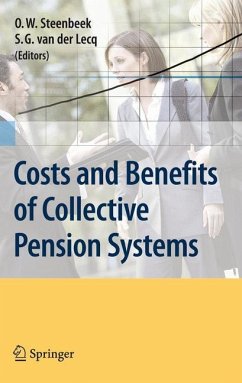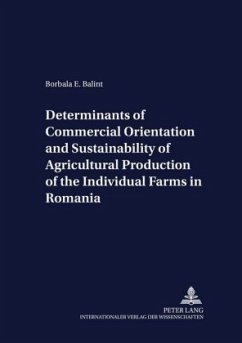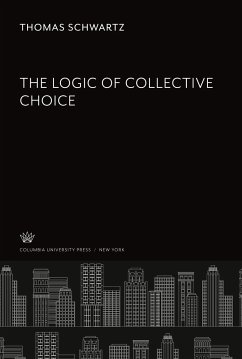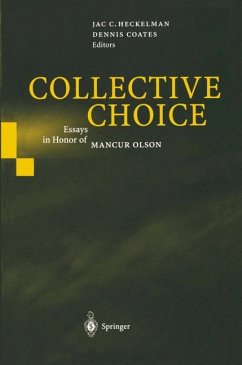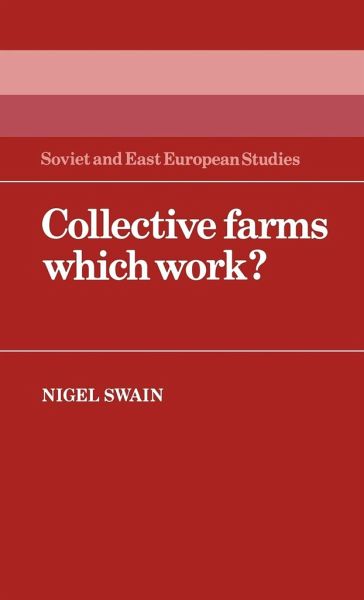
Collective Farms Which Work?
Versandkostenfrei!
Versandfertig in 1-2 Wochen
128,99 €
inkl. MwSt.

PAYBACK Punkte
64 °P sammeln!
The book's novelty lies both in the fact that it is the first book in English to analyse Hungarian collectivisation from a sociological perspective, and also in the nature of that perspective. Rather than consider Eastern European societies in the light of social stratification and social mobility surveys, it takes as its point of departure the commitment of Eastern European societies to industrialisation within the constraints of a socialist economy and, by examining social change from the viewpoint of labour and those who control it, places the focus more strongly than has traditionally been...
The book's novelty lies both in the fact that it is the first book in English to analyse Hungarian collectivisation from a sociological perspective, and also in the nature of that perspective. Rather than consider Eastern European societies in the light of social stratification and social mobility surveys, it takes as its point of departure the commitment of Eastern European societies to industrialisation within the constraints of a socialist economy and, by examining social change from the viewpoint of labour and those who control it, places the focus more strongly than has traditionally been the case on the production of social wealth, and the relations which circumscribe it, rather than on the ways in which wealth is distributed and consumed.
Table of contents:
Preface; Introduction; Part I. 'Family Labour' and 'Socialist Wage Labour' in Hungary's Co-operative Agriculture: The Incorporation of Petty Commodity Production: 1. 'Family labour' in the achievement and consolidation of collectivised agriculture, 1946-68; 2. 'Family labour' and 'socialist wage labour': from integration to symbiosis, 1968-77; Part II. Members and Managers: 3. The social composition of the agricultural producer co-operative labour force; 4. Professional management on agricultural producer co-operatives: genesis and social characteristics; Part III. Managerial Control in Agriculture: 5. Co-operative management's autonomy; 6. The exercise of managerial control in agriculture; Conclusion; Appendix; Notes; References and bibliography; Index.
This is the first book in English to analyse Hungarian collectivisation from a sociological perspective. Its focus is on the production of social wealth, and the relations which circumscribe it, rather than on the ways in which wealth is distributed and consumed.
This is the first book in English to analyse Hungarian collectivisation from a sociological perspective.
Table of contents:
Preface; Introduction; Part I. 'Family Labour' and 'Socialist Wage Labour' in Hungary's Co-operative Agriculture: The Incorporation of Petty Commodity Production: 1. 'Family labour' in the achievement and consolidation of collectivised agriculture, 1946-68; 2. 'Family labour' and 'socialist wage labour': from integration to symbiosis, 1968-77; Part II. Members and Managers: 3. The social composition of the agricultural producer co-operative labour force; 4. Professional management on agricultural producer co-operatives: genesis and social characteristics; Part III. Managerial Control in Agriculture: 5. Co-operative management's autonomy; 6. The exercise of managerial control in agriculture; Conclusion; Appendix; Notes; References and bibliography; Index.
This is the first book in English to analyse Hungarian collectivisation from a sociological perspective. Its focus is on the production of social wealth, and the relations which circumscribe it, rather than on the ways in which wealth is distributed and consumed.
This is the first book in English to analyse Hungarian collectivisation from a sociological perspective.





